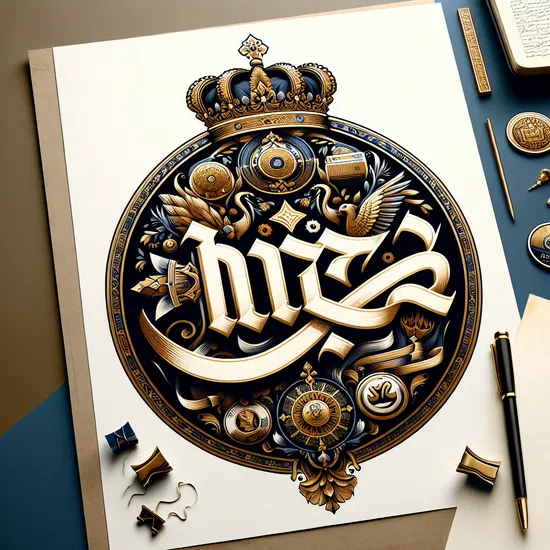Mirza Name Meaning, Origin, Popularity Trends & Similar Names
Understanding the Meaning of Mirza
The name Mirza is encompassed with attributes such as noble and leader. Traditionally a title of honor, it implies one of the gentry or nobility in certain cultures. Carrying a sense of distinction, it's a name related to eminence and prestige.
Find more names related to the name Mirza.
Noble,
Leader,
Persian,
Pronunciation of ميرزا in Persian
/mɪrˈzɑ:/ - ميرزا
- /m/: pronounced like 'm' in 'man'
- /ɪ/: pronounced like 'i' in 'bit'
- /r/: a rolled or quick 'r'
- /z/: pronounced like 'z' in 'zebra'
- /ɑ:/: a long 'a' sound like 'a' in 'father'
For English speakers, 'Mirza' can be pronounced as 'meer-zah', with emphasis on the first syllable.
Origin of the Name Mirza
The name Mirza has its roots primarily in Persian culture, stemming from the fusion of Persian and Mongol influences. Its usage spans across the Middle East and South Asia, where it was historically used as a noble title, conveying respect and authority.
Gender Neutrality of Mirza
Mirza is known to be gender-neutral, making it suitable for both boys and girls. While traditionally it skewed towards males in regions like Persia and India, today, many people embrace its versatility. Figures like Mirza Ghalib and Sania Mirza demonstrate its usage among both genders.
Popularity of the Name Mirza
The name Mirza enjoys varied popularity, notably in regions like India and Pakistan. Historically revered as a noble title, its usage in modern times reflects a blend of tradition and contemporary appeal, making occasional appearances in newborn charts around the world.
Global Usage and Perception of Mirza
Globally, the name Mirza is most favored in South Asia and Middle Eastern cultures. In regions like Iran and Turkey, it holds historical significance. Pronunciations and spellings may vary slightly across languages, yet it consistently carries a regal connotation.
| Global Distribution and Gender Ratio of the Name Mirza |
| Country |
Usage % |
Female % |
Male % |
| TR |
49.06% |
2.85% |
97.15% |
| ID |
26.6% |
22.22% |
77.78% |
| MY |
7.06% |
20.35% |
79.65% |
| MX |
1.93% |
95.74% |
4.26% |
| US |
1.81% |
20.45% |
79.55% |
Analysis of gender and name popularity by country relies on data sourced from Gender API.
Characteristic Features of People Named Mirza
- Leadership : Individuals named Mirza often exhibit strong leadership qualities and a commanding presence.
- Nobility : They are perceived to embody noble characteristics, reflecting integrity and respect.
- Charisma : Mirzas are known for their charismatic and engaging personality, often becoming a natural focal point in social settings.
Professional Potential of Mirzas
- Leadership : Many Mirzas pursue careers in leadership positions, such as management or diplomacy.
- Cultural Arts : The name’s deep cultural roots attract Mirzas to the arts and literature.
- Education : Mirzas are often drawn to academic realms, becoming educators or researchers.
Unique and Interesting Facts About Mirza
- Cultural Legacy : Mirza has been immortalized in literature and poetry, with iconic figures like Mirza Ghalib influencing generations.
- Sports Influence : Sania Mirza, an international tennis star, has brought global recognition to the name.
Famous People Named Mirza
- Mirza Ghalib: Renowned 19th-century Urdu and Persian poet.
- Sania Mirza: Indian professional tennis player.
Similar Names
-
Reza: Another Persian name, Reza conveys a sense of satisfaction and contentment and often associated with nobility.
-
Raza: Raza is closely related to Mirza and means contentment or pleasure.
-
Ali: A common name of Arabic origin that signifies someone of noble birth and high status.
-
Omar: A name implying life or ‘flourishing’ often used in Arabic and Persian cultures.
-
Zafar: Reflecting victory, it's a name celebrated in the Indian and Pakistani cultures.
-
Hamza: A name symbolizing bravery and strength within Arabic and related linguistic traditions.
-
Arman: Arman captures the essence of desire or aspiration, popular in Persian-speaking regions.
-
Sami: Signifying a ‘listener’ or ‘exalted’ person, Sami is widely popular in the Middle East.
-
Yasmin: Commonly associated with the fragrant flower, Yasmin holds a lush and exotic charm.
-
Amir: Denoting a prince or ruler, Amir is well-known in Middle Eastern history and culture.
